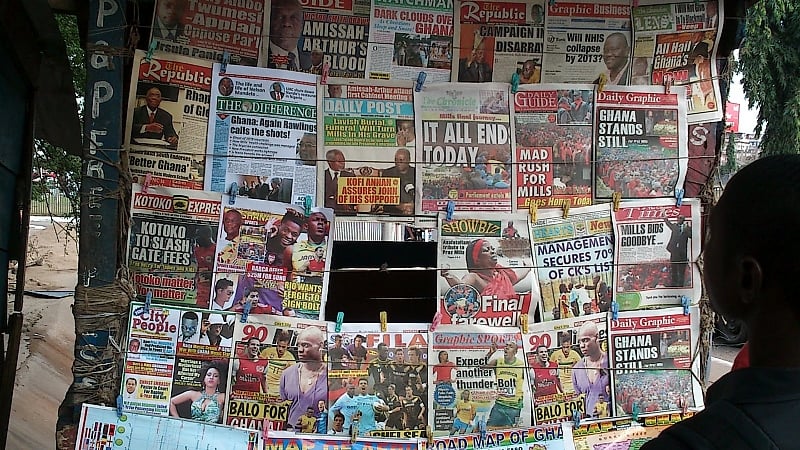The Industrial and Commercial Workers’ Union (ICU) of Ghana has issued a call to action, urging the government to intervene and provide vital support to two of the nation’s cornerstone media outlets, the Daily Graphic and the Ghanaian Times. These state-owned newspapers, facing significant financial challenges, are struggling to maintain operations and meet their obligations to their employees. The ICU emphasizes the crucial role these publications play in informing, educating, and entertaining the Ghanaian public, highlighting their importance in a healthy democracy. The union’s appeal underscores the need for government intervention to ensure the continued viability of these institutions and to safeguard the jobs of the individuals they employ. The concern extends beyond mere financial stability to the very core of press freedom and access to information for the citizenry.
The ICU’s concerns are centered on the accumulating financial burdens faced by these newspapers. Unpaid salaries and outstanding benefits are creating hardship for the employees and their families. This, coupled with a lack of resources for essential operational expenses, threatens to cripple the newspapers’ ability to fulfill their journalistic mandate. The union proposes recapitalization as a key strategy for revitalizing these struggling media organizations. By injecting much-needed capital, the newspapers can address their financial woes, invest in necessary resources, and continue to serve the public effectively. This injection of funds would not only alleviate the immediate financial crisis but also allow for strategic planning and investment in the future of these important media outlets.
Beyond the immediate financial concerns, the ICU’s call to action addresses a larger issue: the need for government support to sustain vital public services. The union argues that state-owned enterprises like the Daily Graphic and Ghanaian Times play a vital role in national discourse and are deserving of government support to ensure their continued operation. This argument extends beyond the media, with the ICU also urging government intervention in other struggling state-owned companies like Neoplan Ghana Limited and PBC Plc. These companies, operating in the transportation and agricultural sectors respectively, represent critical industries for the nation’s economy and employment landscape. The union emphasizes the interconnectedness of these organizations and the broader economic health of the nation.
The case of Neoplan Ghana Limited presents a compelling example of the potential for government intervention to revitalize a struggling industry while addressing broader societal needs. The ICU suggests reviving the company to manufacture buses, including electric buses, to address the nation’s transportation challenges and create jobs. This proposal addresses both economic and environmental concerns, highlighting the potential for strategic investment to create a more sustainable and efficient transport system. The union’s call for investment in PBC Plc underscores the importance of supporting the agricultural sector and ensuring fair treatment for farmers. The decline of PBC Plc, from employing over 30,000 workers to less than 1,000, with two years of unpaid salaries, paints a stark picture of the challenges facing this vital industry.
Central to the ICU’s message is the emphasis on collaboration and partnership between labor and management. Recognizing the interdependence of capital and labor, the union calls for equal partnership and mutual respect in the pursuit of shared goals. They stress that neither capital nor labor can thrive in isolation and that true progress requires a cooperative approach. This principle of collaboration is presented as a cornerstone for successful business operations, emphasizing the need for a unified front to achieve profitability and sustainability. The ICU’s call for equal footing between labor and management highlights the essential contribution of workers in the success of any enterprise.
The ICU’s conference is not just about addressing immediate concerns; it’s also about strengthening the union itself and its role in advocating for workers’ rights. The call for delegates to review and propose amendments to the ICU constitution demonstrates a commitment to continuous improvement and democratic governance within the union. This focus on internal strengthening is complemented by the broader call for adherence to collective agreements and labor laws, emphasizing the importance of established frameworks for resolving workplace issues. The ICU’s emphasis on stakeholder collaboration underlines a commitment to constructive dialogue and proactive engagement in addressing labor concerns, with the goal of preventing disruptive industrial actions. The election of new regional leadership for the women’s, youth, and council executives further underscores the union’s commitment to representation and inclusivity. This renewal of leadership positions ensures that the union remains responsive to the diverse needs of its membership and continues to advocate effectively for workers’ rights across different demographics.














